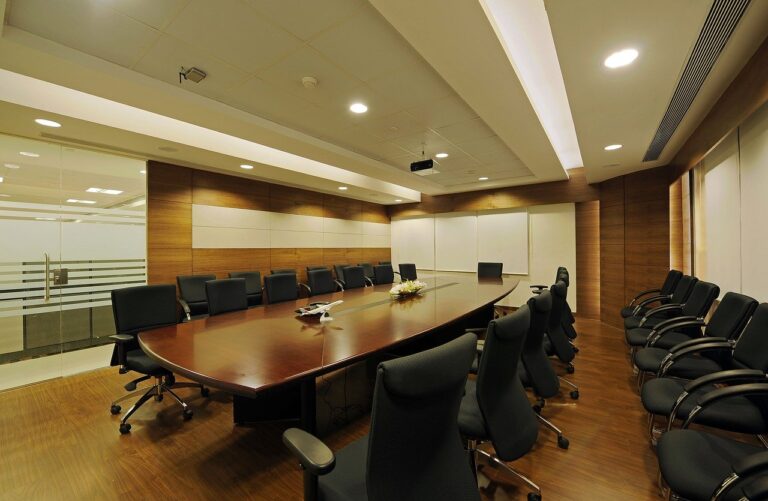Falanx Group plc (LON:FLX) Independent Non-Executive Director William Kilmer caught up with DirectorsTalk to discuss his background, the importance of cybersecurity, how he sees the industry evolving and how his knowledge and background will benefit the company.
Q1: William, first off, congratulations on your new role at Falanx Group. Could you just give us a brief background to yourself?
A1: I’ve been characterised as both an investor and an operator so played on both sides of the table from the tech industry, which has really been where I’ve been my entire life. I’m currently with an investment platform called GALLOS which focus on investment and building companies in the cybersecurity space.
From the investment side, I also was a former Managing Partner at C5 Capital which was a London and Washington DC based investor in cybersecurity. My cybersecurity background really started at Intel Corporation, where I was previously the Managing Partner there, investing in a gamut of different technologies but it’s really where I started to notice the great need for cybersecurity, and it peaked my interest.
On the operating side, I’ve previously run several cybersecurity or data analytics companies that were start-ups that subsequently were acquired. Interestingly enough, I actually ran, as an interim CEO, a cybersecurity managed security services provider based in London called, ITC Secure.
So, most of my work has been in the US, UK and throughout Europe, and for the last 15 years, I’ve really focused on cybersecurity, it’s such a main sector for me.
Q2: You mentioned that you’ve been a founder and CEO of several cybersecurity and data analytics companies. How important is the need for cybersecurity?
A2: Cybersecurity’s always been important but I think it’s really never been more important than it is right now.
Most of us focus on technology as being a key element but I think we’re really transitioning right now to a critical phase in cybersecurity where we’ve now become less focused on technology and more thinking about the cyber posture of an organisation and taking a more holistic point of view. From my perspective, the cybersecurity viewpoint in the UK has really adopted that and maybe been at the forefront, thinking about cyber basics and how organisations really present themselves, protect themselves and that really goes down to the employees.
I think now we’re seeing even more management involvement, even at the Board level is critical for an organisation to be safe, and given the threats that we’ve seen in the market today, particularly from what we would look at as bad actors, outside of our normal sphere that are in more authoritarian regimes, that are enabled and even encouraged and incentivised to attack organizations today.
It’s just critical that every organisation think top to bottom on how they protect themselves.
Q3: How do you see the industry evolving over the coming years?
A3: I think this industry’s always evolving. We think we’ve gotten to the right level of protection with the right types of products that we’re providing but the fact of the matter is the cybersecurity industry is based on our technology industry overall, which is a constantly changing landscape.
So, what are we seeing right now?
Number one is that with technology evolving, there’s going to be more need in the market. We’re seeing a higher use of personal data in our transactions and the things that we’re doing when we think about what’s coming in the future, more personalised digitalisation, for example, the metaverse, we’ll see more issues around data being a key thing. Inside an enterprise, we’re seeing what we call their attack surface, the area that can be attacked by bad actors growing, whether it’s their social media presence, more digital assets that they’re using so those two things are not really helping us in terms of the industry being more protected.
The other thing that we’re seeing that is a real evolution in this market is just the need for good quality individuals. There’s a severe talent gap that’s out there today that is really driving the need for the cybersecurity industry to be innovative and so I think with that, we’re seeing maybe three really evolving themes over the near future:
- One is how do you de-risk that human element? At the end of the day, organisations are run by people, people are fallible and what we see is that most of the attacks that are out there have some sort of human element of it. I think as an industry, we’ve got to be able to comprehend and figure out how to manage that.
- Two is how do you really quantify the risk for particularly a business, but also for government organisations in a way that leaders can understand and know how to respond to? That’s an area that I think we’re continuing to see evolve, where we’re able to start talking more in a business language, what are the potential losses to an organisation, how would it impact a new product launch or their customers?
- Third is really innovation around automation and using in particular AI to not just identify problems, but also to figure out how to solve them. I think we’re going to see more and more technology supplementing and improving the position of those talented people that are in the cybersecurity industry to help them make better decisions or maybe even take some of those decisions off of their plate.
So there’s a lot of really exciting things that are happening in the market today.
Q4: Now, we talked earlier about your knowledge and extensive background in the sector, but how will that benefit Falanx Group?
A4: I think it’ll help in several ways. Number one, I’ve sat in the seat of running a cybersecurity managed services provider in the past, so I know a little bit about the operations and how it should look, the types of products that they should be running and really being able to balance that operational element.
Two is I have pretty extensive technology and in particular product experience. So, one of the things I’m really excited about with Falanx is being able to help them think about some of the new services that they can provide, how they can take products and turn them into services that will help organisations that are missing that talent gap, how they can run those and help them to manage the risk.
Third is from my experience of being out there with the end users, the CSOs of organisations, the business leaders, I think I get a good perspective of what their limitations are and what their real needs are as organisational leaders on how to protect themselves.
So, I’m really looking forward to the opportunity to work with them, this is a critical gap in the market that they’re trying to fill, and I think really the managed security space in particular is we’re really going to see a high amount of growth over the next few years. So, I think it’s a bright future overall for the industry.








































